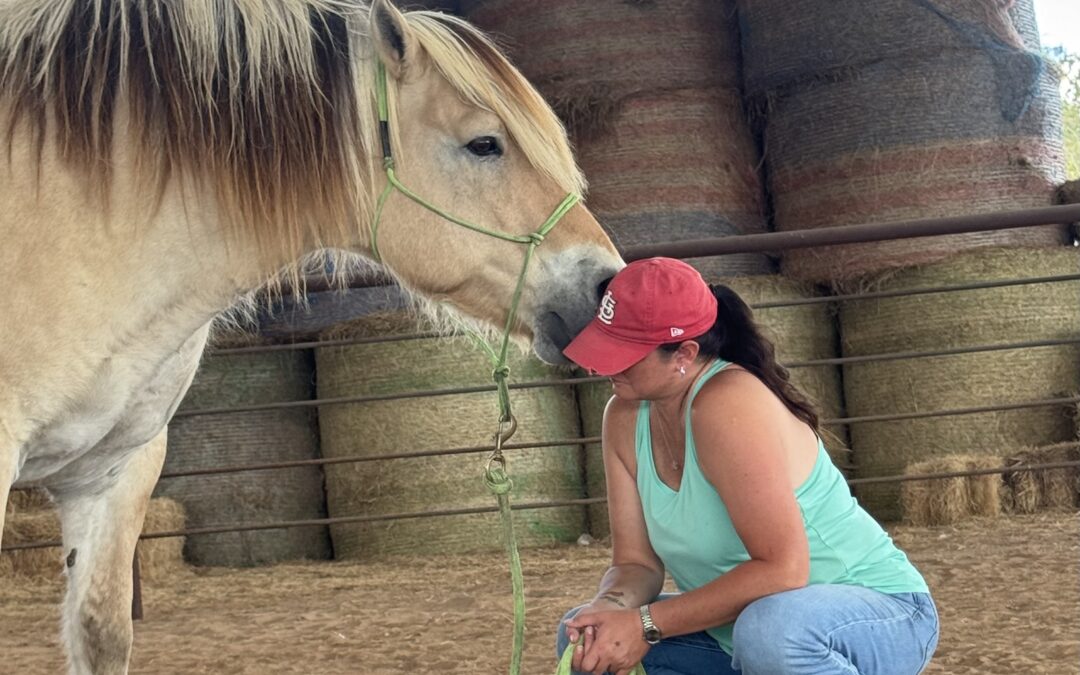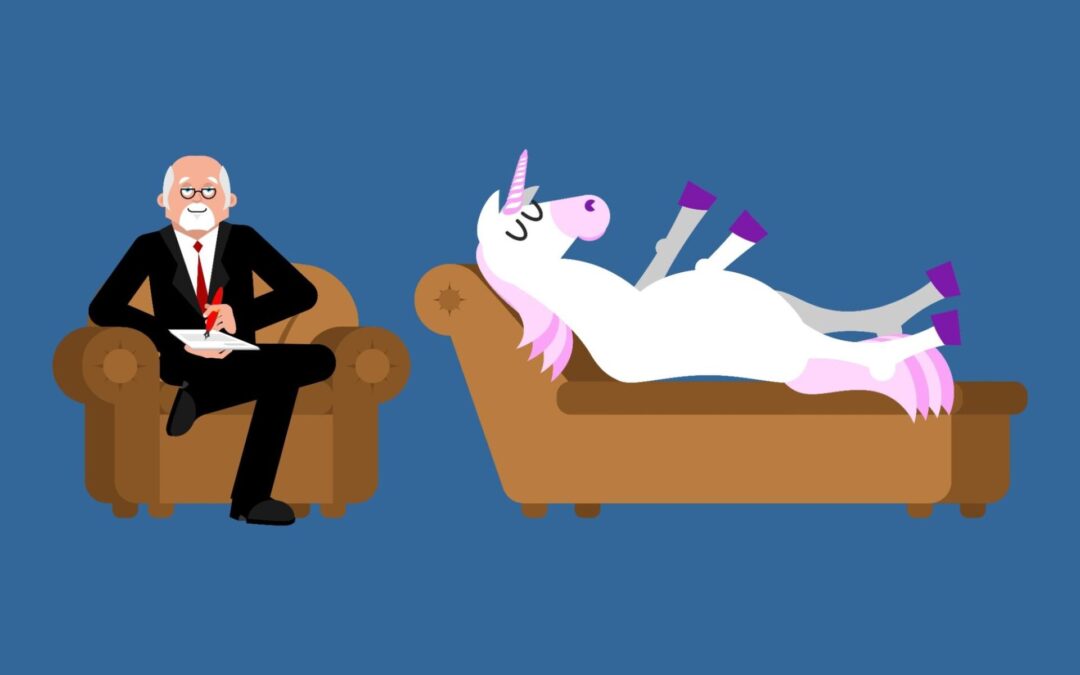There are mornings when the world feels swallowed whole by fog.
The air is thick, still, and sound travels a little differently. You can’t see what’s ahead. You can’t even make out the landmarks you’ve always known. All you can do is take one step, then another, and trust that somewhere beyond the haze, the world still waits for you.
For me, fog carries both a memory and a lesson that shaped who I am and the work I do today— a morning when grief and fear were as dense as the mist itself. Some readers may find the story that follows difficult or upsetting.
A Morning I’ll Never Forget
Right before my thirteenth birthday we moved from Texas to Florida. It was a time of transition, and I was struggling to find my place. My thick Texas accent and big Texas hair made me stand out, during a time in life when all I wanted was to blend in, and fit in. I remember weeping when I got a bad haircut, and lying in bed at night, practicing how to say the word time so I wouldn’t be teased for how I spoke.
My best friend was my horse, Mr. Ed (and my dog Schatzi). He was slow, steady, and gentle, the kind of horse who’d rather walk quietly behind the group than race ahead. I’d sing “You are my sunshine” to him on trail rides. I meant it. He was my anchor, my constant, my connection.
Then one foggy Florida morning, everything changed.
That day began like any other. I pulled on my boots, grabbed the feed buckets, and went out to feed Mr. Ed and his pasture mate, Babydoll. But when I reached the gate, something felt off. The air was heavy. Still. Too quiet.
Then I saw him.
Mr. Ed was standing in the wrong pasture, motionless, his big kind eyes locked on mine. As I got closer to him, I realized that his chest was covered in blood. Then as he began to walk toward me, I realized his back leg was broken, shattered beyond repair. It didn’t make sense at first. For a brief, staggering moment, I thought wild dogs might have attacked him. But then I noticed the splintered boards — the gap in the fence where Mr. Ed had tried to run through, desperate to find his way home. . . to me.
Babydoll, his best friend and a known escape artist, had somehow managed to open the paddock gate. The two of them had wandered out into the road in the early morning fog. The fog was thick, and the drivers didn’t see them until it was too late.
Babydoll was struck first — gone instantly. Mr. Ed was hit soon after by a car with two men on their way to fish at the lake. Somehow, through fear and pain, he ran home. That’s where I found him that morning — in the wrong paddock, trembling, in shock, and in so much pain.
The fog that morning was so thick you could barely see a few feet ahead. And somehow, that blindness, the not seeing, has stayed with me as much as the grief itself.
What I Learned in the Fog
I remember the smell of the damp air. The sound of my own breath, and the pulsing of my heart in my ears. I remember the way the world around me slowed down and sped up at the same time. The way he tried to walk toward me, even though he could barely stand. The vet was on the way, and there was nothing I could do to ease his pain. Still, he pressed his nose into my chest, into the space between my arm and my ribs, as if to say, I’m here. It’s okay.
Mr. Ed was dying, and he was still worried about me. He was still trying to care for me. That day, in the middle of unimaginable loss, I began to understand the sacred bond between human and horse, the kind of attunement that runs deeper than language or logic.
It’s the same truth I see now, years later, in the work we do at Natural Lifemanship.
Connection isn’t fragile. It isn’t limited by circumstance. It’s the thread that remains when everything else disappears.
Grief as a Teacher
At fourteen, I couldn’t see it that way. I just saw the fog. The loss pulled the rug out from under me. I felt untethered. For a long time, I thought that was the end of my story with horses.
But grief has a way of reshaping us quietly over time.
Losing Mr. Ed didn’t just teach me about heartbreak. It taught me about presence, empathy, and how healing begins inside the body long before it shows up in the mind. How every uncertain step taken through the fog becomes its own kind of knowing.
The relationship I had with him became something I carried within me — a quiet, steady reminder of what it means to connect with the one who carries you. He showed me what it means to be truly seen and held. And over the years, I’ve come to understand the lesson he taught me first: that real healing happens in relationship—and that my relationship with not knowing may be one of the most important ones of all.
Even now, when I see fog in the fields, I feel him close, like he’s still there, pressing gently into my side, reminding me to breathe, to trust, to keep moving forward even when I can’t see the path.
That morning in the fog became the beginning of something. It awakened the part of me that would later recognize the healing power of connection, the wisdom of the body, and the importance of sitting with grief—of moving through, not around, the ache of uncertainty when the way forward seems to have disappeared.
Moving Through the Unknown
So much of life and healing mirrors that morning. There are seasons when the path ahead is lost in the mist. We can’t see what’s next. We can’t find the familiar markers that usually keep us steady. And yet, somehow, we’re still asked to take the next step.
The fog invites us to trust what we cannot see. To rely on our other senses. To slow down. To feel our way forward instead of rushing to escape the unknown.
Your Invitation
I’ve carried this story with me for a very long time, its weight in constant flux. I’ve grieved in seasons, in small steps, and in unexpected quiet moments. This story is a part of me that gives more than it took. I see now, how that morning still shapes everything I do, the way I teach, the way I listen, the way I understand healing.
If you’ve ever felt lost in the fog, if you’ve ever wondered how to keep moving when the way forward isn’t clear, if you’ve ever discovered unexpected light in the middle of darkness, this conversation is for you.
Join us for Lessons from the Fog, a live webinar exploring how moments of uncertainty, grief, and transition can become gateways to deeper connection and healing.
And as we look toward 2026, we invite you to bring this same spirit of trust and curiosity into your own NL journey. You don’t need to have it all figured out—not the full year, not the full path. Just the next step.
Whether that next step is the Fundamentals, the Intensive, or simply taking time to reflect before choosing, you can trust your steps, and trust that your path will unfold at the pace it’s meant to.
Our 2026 trainings are designed to meet you wherever you are, and to help you move forward one step, one breath, one moment at a time.
Like walking through fog, the way becomes clearer only as you move. And we’ll be right there with you, to help you find the next step on your path.







Recent Comments